 W
WAbolition of Forced Labour Convention, 1957, the full title of which is Convention concerning the Abolition of Forced Labour, 1957, is one of the eight ILO fundamental conventions of the International Labour Organization, which cancels certain forms of forced labour still allowed under the Forced Labour Convention of 1930, such as punishment for strikes and as a punishment for holding certain political views.
 W
WThe African Charter on Human and Peoples' Rights is an international human rights instrument that is intended to promote and protect human rights and basic freedoms in the African continent.
 W
WThe African Development Bank Group or Banque Africaine de Développement (BAD) is a multilateral development finance institution headquartered in Abidjan, Ivory Coast, since September 2014. The AfDB is a financial provider to African governments and private companies investing in the regional member countries (RMC).
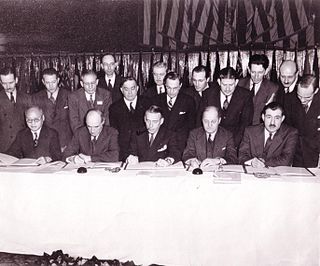 W
WThe Convention on International Civil Aviation, also known as the Chicago Convention, established the International Civil Aviation Organization (ICAO), a specialized agency of the UN charged with coordinating international air travel. The Convention establishes rules of airspace, aircraft registration and safety, security, and sustainability, and details the rights of the signatories in relation to air travel. The Convention also contains provisions pertaining to taxation.
 W
WCITES is a multilateral treaty to protect endangered plants and animals. It was drafted as a result of a resolution adopted in 1963 at a meeting of members of the International Union for Conservation of Nature (IUCN). The convention was opened for signature in 1973 and CITES entered into force on 1 July 1975.
 W
WThe World Customs Organization (WCO) is an intergovernmental organization headquartered in Brussels, Belgium. The WCO works on customs-related matters including the development of international conventions, instruments, and tools on topics such as commodity classification, valuation, rules of origin, collection of customs revenue, supply chain security, international trade facilitation, customs enforcement activities, combating counterfeiting in support of Intellectual Property Rights (IPR), illegal drug enforcement, combating counterfeiting of medicinal drugs, illegal weapons trading, integrity promotion, and delivering sustainable capacity building to assist with customs reforms and modernization. The WCO maintains the international Harmonized System (HS) goods nomenclature, and administers the technical aspects of the World Trade Organization (WTO) Agreements on Customs Valuation and Rules of Origin.
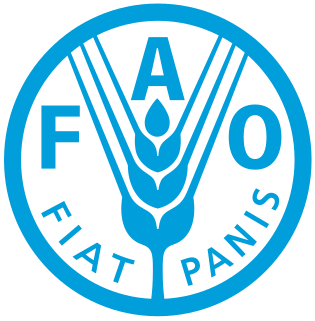 W
WThe Food and Agriculture Organization of the United Nations (FAO) is a specialized agency of the United Nations that leads international efforts to defeat hunger and improve nutrition and food security. Its Latin motto, fiat panis, translates to "let there be bread". It was founded in October 1945.
 W
WThe First Geneva Convention for the Amelioration of the Condition of the Wounded in Armies in the Field, held on 22 August 1864, is the first of four treaties of the Geneva Conventions. It defines "the basis on which rest the rules of international law for the protection of the victims of armed conflicts." After the first treaty was adopted in 1864, it was significantly revised and replaced in 1906, 1929, and finally 1949. It is inextricably linked to the International Committee of the Red Cross, which is both the instigator for the inception and enforcer of the articles in these conventions.
 W
WThe Second Geneva Convention for the Amelioration of the Condition of Wounded, Sick and Shipwrecked Members of Armed Forces at Sea is one of the four treaties of the Geneva Conventions. The Geneva Convention for the Amelioration of the Condition of Wounded, Sick and Shipwrecked Members of Armed Forces at Sea was first adopted in 1949, it replaced the Hague Convention (X) of 1907. It adapts the main protective regime of the First Geneva Convention to combat at sea.
 W
WThe Third Geneva Convention, relative to the treatment of prisoners of war, is one of the four treaties of the Geneva Conventions. The Geneva Convention relative to the Treatment of Prisoners of War was first adopted in 1929, but significantly revised at the 1949 conference. It defines humanitarian protections for prisoners of war. There are 196 state parties to the Convention.
 W
WThe Geneva Convention relative to the Protection of Civilian Persons in Time of War, more commonly referred to as the Fourth Geneva Convention and abbreviated as GCIV, is one of the four treaties of the Geneva Conventions. It was adopted in August of 1950. While the first three conventions dealt with combatants, the Fourth Geneva Convention was the first to deal with humanitarian protections for civilians in a war zone. There are currently 196 countries party to the 1949 Geneva Conventions, including this and the other three treaties.
 W
WThe International Bank for Reconstruction and Development (IBRD) is an international financial institution, established in 1944 and headquartered in Washington, D.C., United States, that is the lending arm of World Bank Group. The IBRD offers loans to middle-income developing countries. The IBRD is the first of five member institutions that compose the World Bank Group. The initial mission of the IBRD in 1944, was to finance the reconstruction of European nations devastated by World War II. The IBRD and its concessional lending arm, the International Development Association (IDA), are collectively known as the World Bank as they share the same leadership and staff.
 W
WThe International Development Association (IDA) is an international financial institution which offers concessional loans and grants to the world's poorest developing countries. The IDA is a member of the World Bank Group and is headquartered in Washington, D.C. in the United States. It was established in 1960 to complement the existing International Bank for Reconstruction and Development by lending to developing countries which suffer from the lowest gross national income, from troubled creditworthiness, or from the lowest per capita income. Together, the International Development Association and International Bank for Reconstruction and Development are collectively generally known as the World Bank, as they follow the same executive leadership and operate with the same staff.
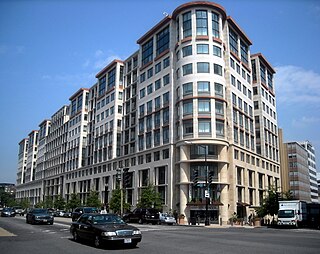 W
WThe International Finance Corporation (IFC) is an international financial institution that offers investment, advisory, and asset-management services to encourage private-sector development in less developed countries. The IFC is a member of the World Bank Group and is headquartered in Washington, D.C. in the United States.
 W
WThe International Fund for Agricultural Development is an international financial institution and a specialised agency of the United Nations that works to address poverty and hunger in rural areas of developing countries. It is the only multilateral development organization that focuses solely on rural economies and food security.
 W
WThe International Labour Organization (ILO) is a United Nations agency whose mandate is to advance social and economic justice through setting international labour standards. Founded in October 1919 under the League of Nations, it is the first and oldest specialised agency of the UN. The ILO has 187 member states: 186 out of 193 UN member states plus the Cook Islands. It is headquartered in Geneva, Switzerland, with around 40 field offices around the world, and employs some 3,381 staff across 107 nations, of whom 1,698 work in technical cooperation programmes and projects.
 W
WThe International Maritime Organization is a specialised agency of the United Nations responsible for regulating shipping. The IMO was established following agreement at a UN conference held in Geneva in 1948 and the IMO came into existence ten years later, meeting for the first time in 1959. Headquartered in London, United Kingdom, the IMO currently has 174 member states and three associate members.
 W
WThe International Mobile Satellite Organization (IMSO) is the intergovernmental organization that oversees certain public satellite safety and security communication services provided via the Inmarsat satellites. Some of these services concern:Global Maritime Distress Safety System (GMDSS) established by the International Maritime Organization (IMO) Search and rescue co-ordinating communications Maritime safety information (MSI) broadcasts Aeronautical mobile satellite (route) service, or AMS(R)S, through compliance with the Standards and Recommended Practices (SARPs) established by the International Civil Aviation Organization (ICAO) General communications
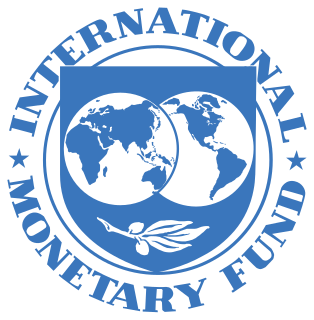 W
WThe International Monetary Fund (IMF) is an international financial institution, headquartered in Washington, D.C., consisting of 190 countries "working to foster global monetary cooperation, secure financial stability, facilitate international trade, promote high employment and sustainable economic growth, and reduce poverty around the world." Formed in 1944, started on 27 December 1945, at the Bretton Woods Conference primarily by the ideas of Harry Dexter White and John Maynard Keynes, it came into formal existence in 1945 with 29 member countries and the goal of reconstructing the international monetary system. It now plays a central role in the management of balance of payments difficulties and international financial crises. Countries contribute funds to a pool through a quota system from which countries experiencing balance of payments problems can borrow money. As of 2016, the fund had XDR 477 billion.
 W
WThe International Organization for Migration (IOM) is an intergovernmental organization that provides services and advice concerning migration to governments and migrants, including internally displaced persons, refugees, and migrant workers. In September 2016, IOM became a related organization of the United Nations. It was initially established in 1951 as the Intergovernmental Committee for European Migration (ICEM) to help resettle people displaced by World War II. As of 2021, the International Organization for Migration has 173 member states and nine observer states.
 W
WThe International Telecommunications Satellite Organization (ITSO) is an intergovernmental organization charged with overseeing the public service obligations of Intelsat.
 W
WThe Treaty on the Non-Proliferation of Nuclear Weapons, commonly known as the Non-Proliferation Treaty or NPT, is an international treaty whose objective is to prevent the spread of nuclear weapons and weapons technology, to promote cooperation in the peaceful uses of nuclear energy, and to further the goal of achieving nuclear disarmament and general and complete disarmament. Between 1965 and 1968, the treaty was negotiated by the Eighteen Nation Committee on Disarmament, a United Nations-sponsored organization based in Geneva, Switzerland.
 W
WA World Heritage Site is a landmark or area with legal protection by an international convention administered by the United Nations Educational, Scientific and Cultural Organization (UNESCO). World Heritage Sites are designated by UNESCO for having cultural, historical, scientific or other form of significance. The sites are judged to contain "cultural and natural heritage around the world considered to be of outstanding value to humanity". To be selected, a World Heritage Site must be a somehow unique landmark which is geographically and historically identifiable and has special cultural or physical significance. For example, World Heritage Sites might be ancient ruins or historical structures, buildings, cities, deserts, forests, islands, lakes, monuments, mountains, or wilderness areas. A World Heritage Site may signify a remarkable accomplishment of humanity, and serve as evidence of our intellectual history on the planet, or it might be a place of great natural beauty. As of July 2021, a total of 1,154 World Heritage Sites exist across 167 countries. With 58 selected areas, Italy is the country with the most sites on the list.
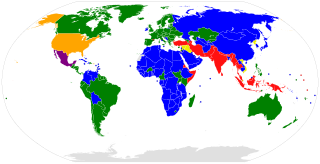 W
WProtocol I is a 1977 amendment protocol to the Geneva Conventions relating to the protection of victims of international conflicts, where "armed conflicts in which peoples are fighting against colonial domination, alien occupation or racist regimes" are to be considered international conflicts. It reaffirms the international laws of the original Geneva Conventions of 1949, but adds clarifications and new provisions to accommodate developments in modern international warfare that have taken place since the Second World War.
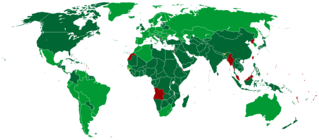 W
WThe International Convention on the Elimination of All Forms of Racial Discrimination (ICERD) is a United Nations convention. A third-generation human rights instrument, the Convention commits its members to the elimination of racial discrimination and the promotion of understanding among all races. The Convention also requires its parties to outlaw hate speech and criminalize membership in racist organizations.
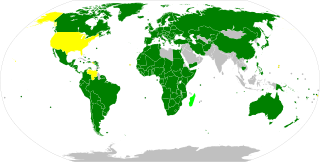 W
WThe Convention Relating to the Status of Refugees, also known as the 1951 Refugee Convention or the Geneva Convention of 28 July 1951, is a United Nations multilateral treaty that defines who a refugee is, and sets out the rights of individuals who are granted asylum and the responsibilities of nations that grant asylum. The Convention also sets out which people do not qualify as refugees, such as war criminals. The Convention also provides for some visa-free travel for holders of refugee travel documents issued under the convention.
 W
WThe Protocol Relating to the Status of Refugees is a key treaty in international refugee law. It entered into force on 4 October 1967, and 146 countries are parties.
 W
WThe United Nations Educational, Scientific and Cultural Organization (UNESCO) is a specialised agency of the United Nations (UN) aimed at promoting world peace and security through international cooperation in education, the sciences, and culture. It has 193 member states and 11 associate members, as well as partners in the non-governmental, intergovernmental, and private sector. Headquartered at the World Heritage Centre in Paris, France, UNESCO has 53 regional field offices and 199 national commissions that facilitate its global mandate.
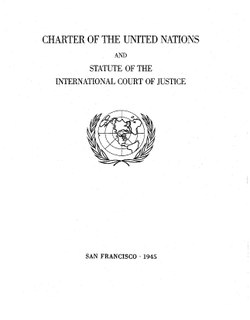 W
WThe Charter of the United Nations is the foundational treaty of the United Nations, an intergovernmental organization. It establishes the purposes, governing structure, and overall framework of the UN system, including its six principal organs: the Secretariat, the General Assembly, the Security Council, the Economic and Social Council, the International Court of Justice, and the Trusteeship Council.
 W
WThe Vienna Convention on Consular Relations is an international treaty that defines a framework for consular relations between sovereign states. It codifies many consular practices that originated from state custom and various bilateral agreements between states.
 W
WThe Vienna Convention on Diplomatic Relations of 1961 is an international treaty that defines a framework for diplomatic relations between independent countries. It specifies the privileges of a diplomatic mission that enable diplomats to perform their function without fear of coercion or harassment by the host country. This forms the legal basis for diplomatic immunity. Its articles are considered a cornerstone of modern international relations. As of June 2020, it has been ratified by 193 states.
 W
WThe World Health Organization (WHO) is a specialized agency of the United Nations responsible for international public health. The WHO Constitution states its main objective as "the attainment by all peoples of the highest possible level of health". Headquartered in Geneva, Switzerland, it has six regional offices and 150 field offices worldwide.
 W
WThe World Meteorological Organization (WMO) is a specialized agency of the United Nations responsible for promoting international cooperation on atmospheric science, climatology, hydrology and geophysics.